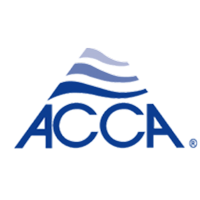
We can all benefit from saving money from time to time. One of the easiest ways to do so is by making some energy-efficient changes throughout your home. Upgrading your HVAC equipment or installing a smart thermostat, for example, offers more control over your heating and cooling system, leading to a more energy-efficient home and lower monthly energy bills.
Continue below to learn more about 4 ways you can make energy-efficient home improvements.
1. Use Smart Home Products Like a Smart Thermostat
If you still use a round-dial thermostat and access it manually, consider taking a step toward the future by installing a smart, or Wi-Fi, thermostat – which contains several features to assist with energy efficiency.
The functionality homeowners like the most is being able to access their smart thermostats from anywhere with their smartphone or other smart device. As an example, when you forget to change your thermostat before going on vacation, you can easily use your smartphone and make the adjustments.
Just like a programmable thermostat, a smart thermostat enables you to pre-set your home’s temperature based on the time of day and day of the week so you’re not cooling or heating an empty house. Smart thermostats also have the capacity to learn your temperature preferences over time and automatically make energy-efficient corrections. They even generate monthly energy reports that illustrate how much energy you’re using and when so you can make changes to save money.
If you’re curious about how to obtain a free smart thermostat, check with your utility company to find out if there are any discounts or free smart thermostats available.
2. HVAC Tune Ups
Sadly, many homeowners often forget about having their heating and cooling systems maintained. While this may not seem important, ignoring maintenance could lead to a number of issues, including inefficiency, breakdowns, and a shorter system lifespan.
With an HVAC maintenance service, the technician will evaluate your HVAC system, clean necessary components, and pinpoint minor problems before they create bigger, more expensive repair issues. Maintenance can keep HVAC systems functioning at optimal condition, which means less energy is used to heat and cool your home. This will reduce your energy bills, prolong the lifespan of HVAC equipment, and contribute to fewer repairs.
We encourage two HVAC tune ups every year – once during the spring before summer and one during the fall before the arrival of frigid weather.
3. Getting rid of Your Old, Inefficient HVAC Equipment
Unfortunately, like any appliance, HVAC systems have a shelf life and eventually need to be replaced. Modern heaters and cooling systems are much more energy efficient than units sold just over a decade ago. Thankfully, local HVAC companies like J & J Air Conditioning can perform professional services like furnace installation in Eastland.
Well-maintained furnaces and air conditioners can last about 15-20 years. If your systems are within that period of time, it can be a good idea to replace them ahead of time to minimize the risk of premature equipment failure that can leave you cold and uncomfortable on a cold winter night. If your system is around 15 years old and requires an expensive repair, it’s almost always time to replace the system. According to the U.S. Department of Energy, upgrading to a new HVAC system can sometimes save you approximately 20-40% on your monthly energy bills, so you’ll recoup some of the costs of buying a new system.
A professional comfort technician can help you determine the most energy efficient HVAC system on the market. For the most part, seek out HVAC systems that are Energy Star certified, indicating the equipment fulfills strict guidelines established by the U.S. Environmental Protection Agency. LENNOX HVAC systems are some of the most efficient systems on the market, offering both high AFUE and SEER ratings. AFUE is intended for heating systems and measures how well they convert fuel to heat. SEER, in the meantime, is used to quantify the efficiency of air conditioning systems.
Call a reputable HVAC provider like J & J Air Conditioning for air conditioning installation in Eastland.
4. Use High Efficiency Air Filters
If you’re shopping for new HVAC filters, remember that not all air filters are the same. Specific air filters are far more efficient than others, resulting in lower energy bills and cleaner indoor air.
The efficiency of HVAC air filters is illustrated by their Minimum Efficiency Reporting Value, or MERV rating. The MERV scale ranges from 1-20; the higher the number, the more efficient the filters are. It’s relevant to note, however, that high-efficiency air filters can in fact impede airflow too much depending on the type of HVAC system you have. It’s worthwhile to study the owner’s manual before purchasing a filter to find the right one for your system.

